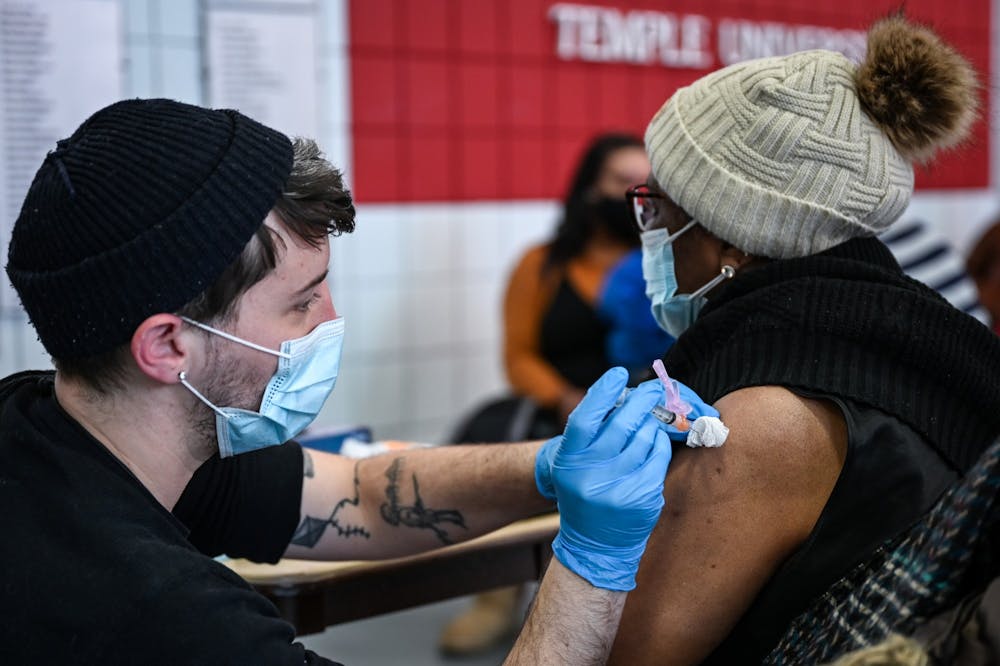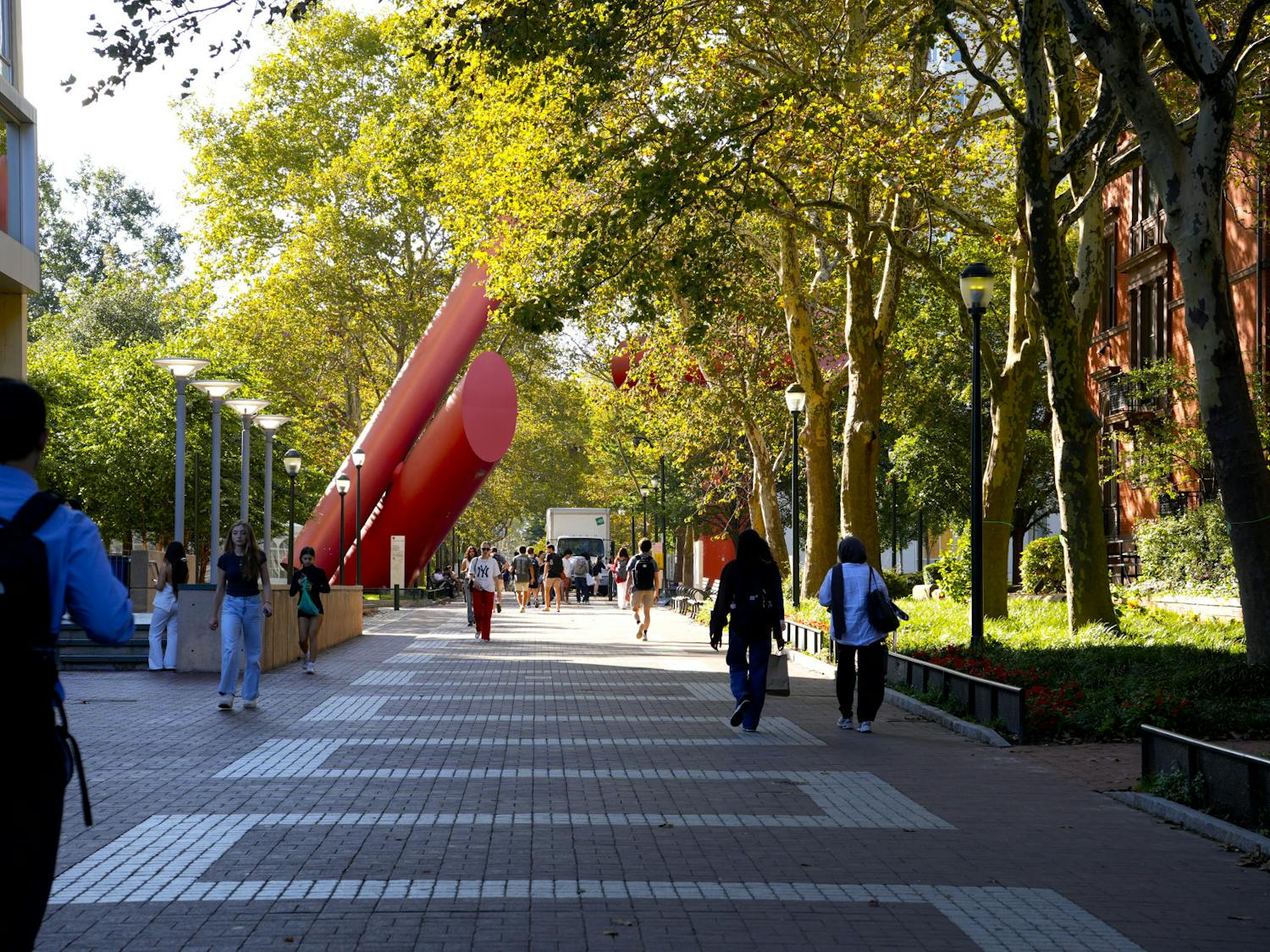Penn has partnered with the City of Philadelphia to sponsor a lottery of monetary prizes of up to $50,000 awarded to individuals for getting the COVID-19 vaccine, according to an announcement by Philadelphia Mayor Jim Kenney.
Kenney announced on June 7 the creation of the "Philly Vax Sweepstakes" in which 36 vaccinated residents of Philadelphia ages 18 and older can win prizes of up to $50,000. The lottery event started on June 7 and will run until July 18. In total, the City of Philadelphia will award $400,000 in prize money. Various organizations at Penn collaborated to provide monetary sponsorship to the sweepstake.
During the event, there will be three dates — June 20, July 5, and July 18 — on which 12 winners will be randomly selected. Each period, two winners will be awarded $50,000, four will win $5,000, and six will win $1,000.
All adults 18 or older are automatically entered in the program, regardless of vaccination status, though they are encouraged to confirm their registration through the sweepstake website to guarantee a spot. To receive their prize, winners will be required to confirm their vaccination status.
The program was organized as a collaborative effort by partners at Penn's Behavior Change for Good Initiative and the Center for Health Incentives and Behavioral Economics, as well as Philadelphia Mayor’s Office, Philadelphia Department of Public Health, Philly Counts, the Black Doctors COVID Consortium, and the Flu Lab.
First-year Wharton doctoral candidate Linnea Gandhi, who was involved in the planning of the lottery, said that the idea for the program originally came from behavioral economics researchers at Wharton.
"There's been a real surge in interest in using financial incentives to encourage people to get vaccinated," Director of CHIBE Kevin Volpp said. "Efforts like the Philly Vax Sweepstakes recognize that there are a number of people who are reluctant to get vaccinated. It's a way to try to get people vaccinated because that's our best path out of the pandemic."
During each entry period, half of all winners will be chosen from one of the zip codes with the lowest vaccination rates, according to the official rules of the sweepstake. In the first entry period, six winners will be chosen from the 19126 zip code in the East and West Oak Lane neighborhoods of North Philadelphia. Compared to the rest of the city, those living there have "roughly a 100 times greater chance" of winning one of the prizes, according to the mayor's announcement.
RELATED:
Mapping U.S. colleges' COVID-19 vaccine requirement policies
Annenberg study finds testimony from scientists increases positive views of vaccines
“We want people to know their odds are higher,” Gandhi said. "[By targeting specific ZIP codes,] we can see if that really helps motivate people.”
Volpp said that many of the aspects of the program are inspired by research in behavioral economics. For example, Volpp designed the sweepstake to test the concept of a universal registration system.
By automatically making every resident eligible to be contacted as a sweepstakes "winner" regardless of vaccination status, individuals who did not get vaccinated could be contacted and informed that they cannot receive the cash prize. The “anticipated regret," he said, increases the expected value of the reward. This is something the team “wanted to leverage to encourage more people to get vaccinated.”
The program took inspiration from similar lotteries in other states. California offered grand prizes of $1.5 million and New Mexico awarded a grand prize of $5 million to one vaccinated person. Ohio’s sweepstakes that promised a single winner $1 million boosted vaccination rates in Ohio by 28%.
Though the most that an individual can receive through the Philadelphia jackpot is $50,000, the lesser prizes were intentional, according to Volpp.
“We’ve done some research showing that combination lotteries work better," he said. “You have not only a chance at the jackpot, but you also have a higher probability of smaller reward.”
In order to encourage more people to get vaccinated, Penn has been working with the Philadelphia Mayor’s Office, Philly Counts, and the Black Doctors’ COVID Consortium to spread public awareness of the initiative.
BCFG Research Project Manager Sean Ellis said that the team distributed flyers in targeted neighborhoods, sent canvassers into the areas, and announced the program through news outlets.
“Now we're just trying to get on the ground,” Ellis said. “Keep people engaged, keep people signing up and getting vaccinated.”









